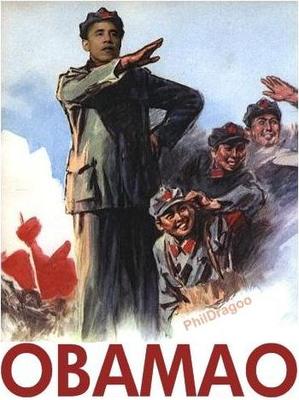Every once in a while my work puts me in the presence of greatness. It did so yesterday when I had the pleasure and privilege of working with South African Justice Edwin Cameron, the only public official in all of Africa to publicly state that he has AIDS. He is probably also the only openly gay official on the continent. Oxford-educated and a Rhodes Scholar, Justice Cameron’s contributions to human rights and AIDS awareness, and his personal courage, cannot be exaggerated.
Yesterday he spoke with reporters in Beijing about a recent Renmin University-UNAIDS survey [pdf file] on the attitudes of Chinese people in six cities – Kunming, Shenzhen, Shanghai, Wuhan, Zhengzhou and Beijing – toward AIDS and AIDS sufferers. The survey sampled four groups, migrant workers, blue collar workers, white collar workers and youth, and it provides some depressing if not especially surprising findings:
– More than 48% of respondents thought they could contract HIV from a mosquito bite, and over 18% by having an HIV positive person sneeze or cough on them.
– Around 83% of interviewees had never searched for information on HIV/AIDS.
– Nearly 30 % did not know how to use a condom correctly.
– Only 19 % said they would use a condom if they had sex with a new partner.
– Nearly 11% of respondents had had sex with people who were not their spouse, girlfriend or boyfriend during the past 6 months; 42% of those respondents had not used condoms.
– 30% think HIV positive children should not be allowed to study at the same schools as uninfected children.
– Nearly 65% would be unwilling to live in same household with an HIV-infected person and 48% of interviewees would be unwilling to eat with an HIV-infected person.
In other words, we haven’t made much progress since I first started writing about this topic five years ago, at least not in terms of people’s attitudes and awareness. In terms of treatment, there has been huge progress in China, including anti-discrimination laws and free retrovirals for anyone with AIDS. The government needs to do much, more, however. Justice Cameron said, for example, that while the government provides free retrovirals for treatment of AIDS, people must still pay for medications for opportunistic infections from their own pockets, which can easily impoverish them.
I don’t really know what it is about natural leaders, the way they stand out in a crowd even when silent, and the way that they make those they’re talking with feel like they are the only person in the entire world. Edwin Cameron has those qualities, and the reporters he spoke to were visibly moved when he made an urgent appeal to them to encourage HIV sufferers in China to act as activists and to speak out the way he has. That is the only way to overcome stigma, he said., noting that what makes AIDS so insidious is that in many places it remains “a silent disease.” People suffer in silence for fear of ostracism if they tell the truth. This fear discourages Chinese people from getting tested, and those who are tested seek to hide their HIV status at all costs.
“This is a tragedy,” Justice Cameron said. “The Chinese government has a good treatment program. But there is a disturbing pattern here: 35-40,000 people in China are receiving antiviral treatment but more than double that number need treatment.” And they remain silent, and will die unnecessarily, as AIDS today is fully treatable. He pointed to activists in the US in the 1980s who generated a wave of publicity and awareness that put a human face on the disease, lessening the stigmatization in America dramatically. In China and Africa, there are few such activists. That is one of the keys to ending stimatization, he said: Africa needs a Magic Johnson to tell people they do not need to be ashamed of having AIDS.
It isn’t just a matter of fearing ostracism from friends and family, however. He said that AIDS sufferers still get turned away from health clinics in China’s provincial areas. The most poignant moment came when he described to reporters how he needed a special invitation sent from the Chinese government to its consulate in South Africa for him to be permitted entry into China. He added that when he comes to the US he must undergo an even more humiliating ordeal, being tested at the airport to determine whether his AIDS is under control (I am not sure exactly what they test for).
Hu and Wen have visited hospitals and spoken out on AIDS, he said, but efforts to educate the public remain seriously inadequate. “I beg them to do more,” Justice Cameron said.
Perhaps the most controversial topic he discussed was how markedly different the AIDS epidemic is in southern and western Africa, where the level of infection is above 11 percent. This is, he explained, “a mature epidemic, meaning that everone, gay or straight, young or old, knows someone who has died of AIDS.” This is unique; no other geography on earth has seen a massive AIDS epidemic that has spread beyond the main risk groups (injection drug users, plasma donors, “MSM” – men having sex with men – and sex trade workers). It was feared back in the time when I wrote my original post that China would be like Africa, home to a massive epidemic seeping into the mainstream, heterosexual population. It appears that will not happen. Justice Cameron said no one was sure why this phenomenon occurred only in a specific section of Africa, but said the reason could be genetic. In China, the number of people infected by shoddy plasma collection has leveled off, and the levels of infection are beginning to mirror those in other countries, with MSM and injection drug users being the most affected groups.
Working with Edwin Cameron was an inspiration. It was also inspiring to see the level of interest in this topic among the Chinese media. You can se some of the articles here and here. This was the high point of my nearly two years in China, and a day I’ll never forget.


Comments